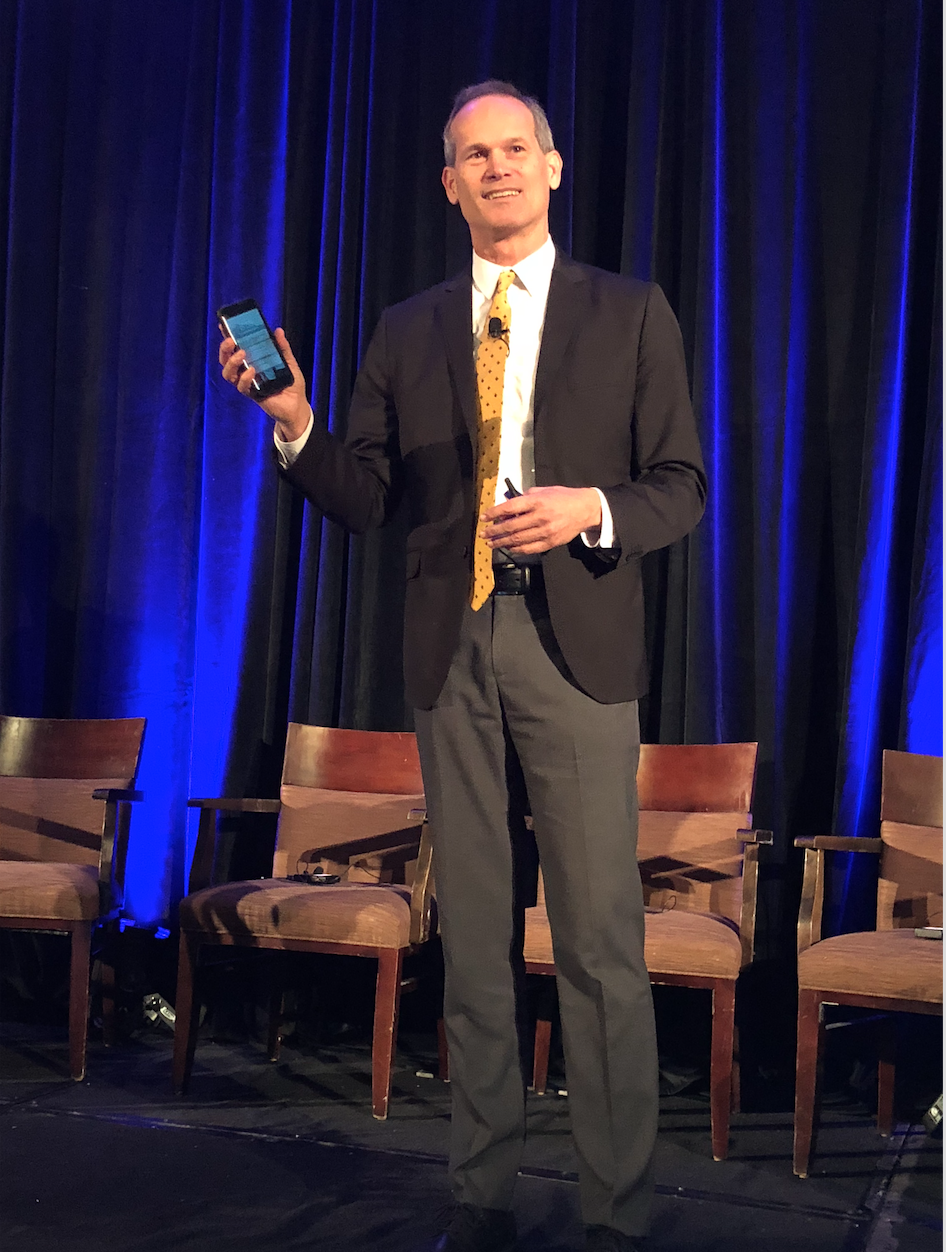
Our Mental Health Month features would not be complete without casting a spotlight on the most “flawless” of people: Craig Kramer, Mental Health Ambassador for Johnson & Johnson. We have known Craig for many years, and this past year we learned more about his personal story and his calling to work in the mental health advocacy world.
We were inspired by Craig’s story when he presented at the National Alliance of Healthcare Purchaser Coalitions’ Annual Forum. By sharing his personal experience of supporting his daughter through an eating disorder, Craig shed light on some of the painful hurdles and roadblocks that so many families face while helping loved ones with mental health challenges.
Craig began with the heartbreaking account of the night he received a call from the Boston police, saying his daughter had attempted suicide. He went on to share how she had developed an eating disorder in her teens and how this led to his own subsequent education in what he called, “the dark hallways of the mental health system.”
Speaking bravely of his family’s pain and frustration, Craig highlighted some of the system’s biggest failings, like a lack of integration between primary care and specialized care, inadequate funding for research and treatment for brain health conditions, and the failure of a united voice to reach Washington and Wall Street.
Craig’s extensive experience speaking with officials from other countries convinced him that when it comes to mental health, “every country is a developing country,” and that our challenges differ only “in degree but not in kind.” Drawing parallels to the way cancer patients were treated when the disease was first identified, Craig pointed out that we think mental health challenges are “communicable” and as a result, those with these medical issues are “locked away” — if not physically, then socially.
The answer that Craig and Johnson & Johnson propose, is, simply, to do for mental health what we’ve done for cancer: raise awareness, treat early, integrate care, provide coverage, and accelerate research. After all, mental health conditions are more common and more costly than cancer, and every bit as biologically based. “It’s not about character, it’s about chemistry,” Craig said.
Craig’s powerful testimony — of the toll that our failing mental healthcare system took on his family — is, unfortunately, one that many can relate to. We cannot continue to leave people living with brain health disorders out of the healthcare system, without access to affordable and reliable care. Sharing our stories as Craig did is the first step towards creating change. Knowing we are not alone is the uniting force of shared experience—helping us to heal and take action.






